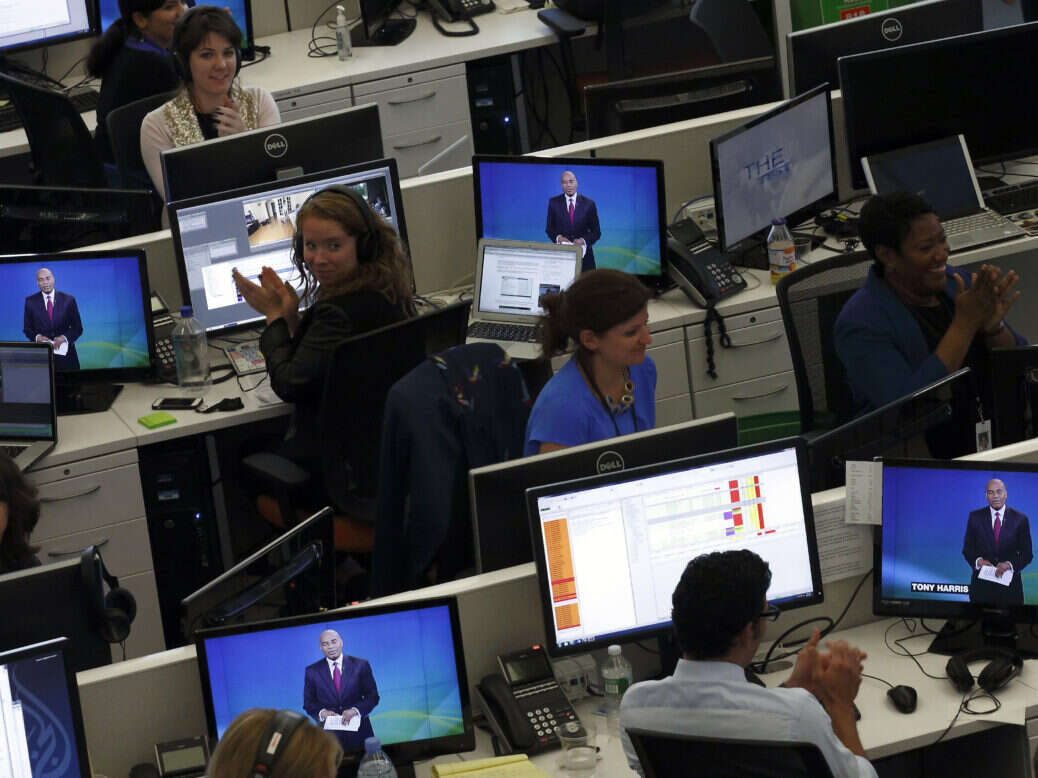
Relentless pace and pressure are hallmarks of the media industry, both of which can make it all too easy to slip into an unhealthy cycle of overwork.
Overwork takes many forms. As paid overtime becomes a distant memory for most workers, there is a tacit agreement in many workplaces that the work needs to get done, at any cost.
There is also a lot of self-induced pressure in the media industry; after all it’s your name or face that’s going to be publicly attributed to the work, so going the extra mile feels particularly necessary.
Three media roles hiring now
- Journalism Researcher, BBC, London
- Parliamentary Reporter, PA Media, Paddington
- Client Partner-Entertainment, Spotify, London
Overworking takes its form in starting early, staying late, not taking breaks, and working at home in the evenings and weekends to catch up.
In our remote-enabled present, overwork is more available than ever. Many bosses pretend not to even notice, which is so much easier when you’re not physically in the office, and of course, breaking news doesn’t stick to a 9-5 schedule, so unrealistic deadlines and always-on work cultures persist.
At one extreme is the so-called “996” culture – referring to the expectation of working 9am to 9pm, six days a week – and its effects are very real. Burnout, stress, and deteriorating physical and mental health are the results of falling in line with the idea of the constant grind.
Though the term 966 originally came from Chinese tech culture, where CEOs explicitly encouraged 12-hour work days, six days a week, in most high-stress workplaces the expectations are more invisibly voiced.
How many hours is overwork?
According to the first global analysis on loss of life and health associated with long working hours (released in 2021), the World Health Organization (WHO) and the International Labour Organization (ILO) found that long working hours led to 745,000 deaths from stroke and ischemic heart disease in 2016, a 29% increase since 2000.
It also found that 55 was the magic number. In 2016, 398,000 people died from stroke and 347,000 from heart disease as a result of having worked at least 55 hours a week.
Its findings say working 55 or more hours per week is associated with an estimated 35% higher risk of a stroke, and a 17% higher risk of dying from ischemic heart disease, compared to working 35-40 hours a week.
Groups most affected
It is a particular issue for men, who accounted for 72% of deaths within the analysis parameters.
And though there are many stories of younger workers dying – for example the 23 year-old employee for Chinese e-commerce platform Pinduoduo who collapsed and passed away while making their way home after midnight – middle-aged and older workers should, statistically, be most concerned.
Most of the deaths recorded in the WHO and ILO analysis were among people dying aged 60-79 years, who had worked for 55 hours or more per week between the ages of 45 and 74 years.
And while younger generations may be better versed in boundaries than Gen X and Boomers, a high-intensity attitude to work can still seem essential for young journalists and media professionals keen to get ahead.
Put in the hard yards now, the thinking goes, and the rewards will follow later. But this approach risks sacrificing some of your most fun and sociable years – and potentially your long-term wellbeing – on the altar of overwork.
Productivity and change
There are pragmatic reasons for individuals and organisations to reject hustle culture too.
Beyond the health impacts, numerous studies have highlighted how working excessive hours inflicts diminishing productivity returns. Critical faculties like focus, decision-making and creativity all substantially deteriorate when people are overworked – negating any perceived benefits of grinding away.
Encouragingly, there are signs of growing scepticism toward hyperwork culture, especially among younger professionals.
While the pressures of the media industry can feel immense, learning to create healthy boundaries is essential.
Three more media roles
- Production Assistant, Dentsu Aegis Network, London
- Sales Manager – 12 Month FTC, News UK, London
- Senior Reporter, UKTN, London
That might mean becoming more vocally insistent on proper compensation for out-of-hours assignments, or collectively raising concerns over unreasonable workloads with managers, or proposing additional resources to cover increasing responsibilities. Plus, joining a union is always a good shout.
As the industry moves relentlessly, those working within it will always face unique pressures, but these stresses shouldn’t be a rationale for embracing toxic overwork that jeopardises your health.
While occasional late nights are inevitable, being chronically ensnared in a 996 culture should be resisted. Saying no to overwork may be professionally tough in the short-term, but in the long run it’s essential for a happy, sustainable life, inside and outside of the workplace.
Ready to start your search? Find new roles in UK media updated daily on the Press Gazette Jobs today
Email pged@pressgazette.co.uk to point out mistakes, provide story tips or send in a letter for publication on our "Letters Page" blog

